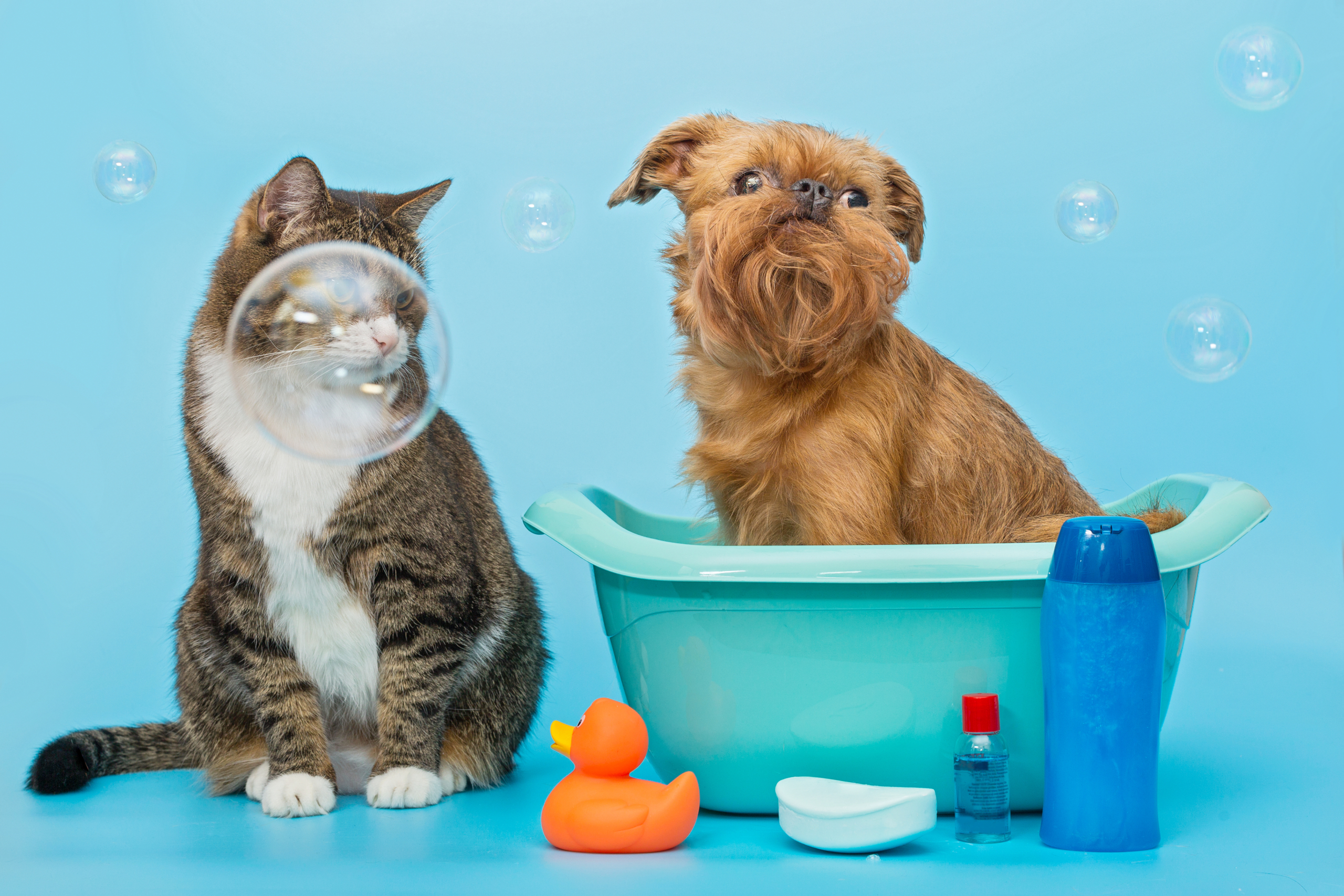2Mami Insights
Your go-to source for news, tips, and inspiration.
Fur Real? The Truth About Pet Grooming Myths
Uncover the shocking truths behind pet grooming myths! Discover what’s fact and what’s fiction to keep your furry friend looking fabulous.
5 Common Pet Grooming Myths Debunked
When it comes to pet grooming, many myths can lead to confusion among pet owners. One common myth is that cats don't need grooming because they groom themselves. While it's true that cats are diligent self-groomers, they can still benefit from regular grooming to reduce shedding and prevent hairballs. Another widespread belief is that short-haired pets do not require grooming at all. In reality, all pets, regardless of their coat length, may need regular brushing to keep their skin healthy and remove loose hair.
Another prevalent misconception is that grooming is only for show pets, leading many owners to neglect their furry companions' grooming needs. However, proper grooming is essential for all pets to maintain their overall health and comfort. Additionally, some people think that homemade grooming solutions are always safe and effective. In fact, many DIY groomers may use inappropriate products that can irritate a pet's skin or cause allergic reactions. Understanding the truth behind these pet grooming myths promotes better care and enhances the bond between pets and their owners.

Is Your Pet Groomer Really Qualified? The Truth Revealed
When choosing a pet groomer, it's essential to ensure that they are truly qualified to care for your furry friend. Many groomers may boast about their experience and skills, but it's crucial to dig a little deeper to uncover the truth. Start by checking if your groomer holds any certifications or has completed formal training in pet grooming. Qualified groomers often complete a course that covers essential topics like animal anatomy, safety procedures, and grooming techniques. Additionally, asking for references or reading online reviews can provide insights into their reputation and reliability.
Beyond certifications, the qualifications of your pet groomer should extend to how they handle your pet during grooming sessions. Observe their interaction with animals—do they appear calm and gentle? It's also important to inquire about their experience with different breeds, as certain dogs and cats have unique grooming needs. You might want to ask the groomer if they conduct any continuing education to stay updated on the latest grooming trends and practices. Ultimately, ensuring that your groomer is qualified can make all the difference in your pet's overall experience and well-being.
Do Pets Really Need Regular Grooming? Separating Fact from Fiction
Many pet owners often wonder, Do pets really need regular grooming? The answer is a resounding yes, especially for certain breeds. Regular grooming serves multiple purposes, including removing dirt, debris, and loose hair, which can improve your pet's overall hygiene and comfort. Additionally, grooming is crucial for maintaining a pet's skin health and coat condition, helping to prevent matting and skin irritations. It's also an excellent opportunity for owners to check for any unusual signs, such as lumps or skin infections, that may require veterinary attention.
On the other hand, some myths surround the necessity of grooming for pets. For instance, many believe that short-haired pets do not require grooming at all. However, this is a misconception. All pets, regardless of hair length, benefit from regular grooming to keep their coats healthy. Grooming can also strengthen the bond between pet and owner, making it a beneficial activity for both. In summary, grooming is not just a luxury but a crucial aspect of your pet's health and well-being.